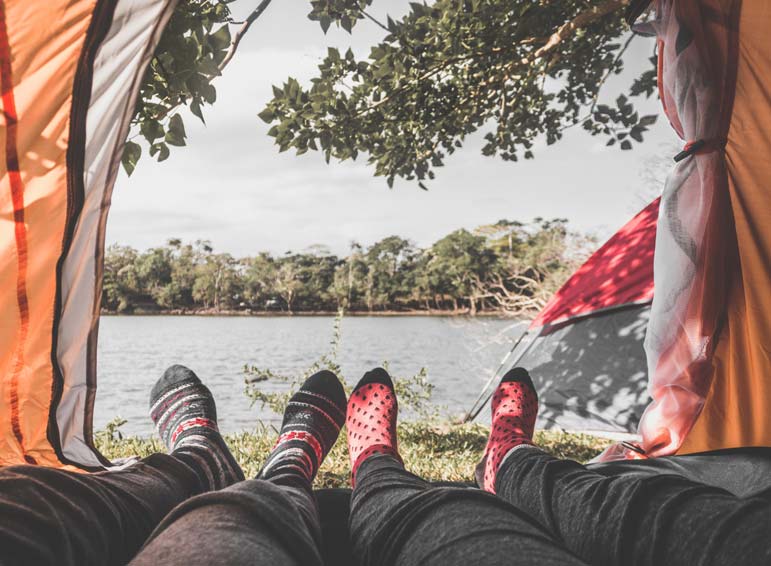
A camper's reentry into the "real world" is more than a homecoming. It offers parents a rare opportunity to reboot: a chance to see their child with fresh eyes, observe how they've changed and developed, and consider any adjustments they as parents might want to make at home to support their child's new growth.
But first, parents will want to catch up.
Be warned, some campers might not divulge much. "The greatest part of camp is one of psychological ownership," says clinical psychologist Michael Thompson, author of "Homesick and Happy." "When kids go away, what happens to them belongs to them and them alone ---- and that kind of freedom is a hard thing for kids to come by today."
One way parents can support this emerging independence is by resisting the urge to question - and unknowingly undermine - the choices their child made while they were away. "When my daughter was at camp, we paid extra for her to horseback ride," Thompson says. But it turns out that she didn't like the instructor and opted to sail everyday in its place. Instead of complaining about her decision, he bit his tongue. Years later she's now arguably the best sailor in the family, he says.
Campers often come home eager to show off their new skills, like making their bed and sweeping the floor. But after a few days, it's easy for families to fall back into old routines. "Parents and kids can easily go back to the way things use to be because the brain prefers to do what is already automatic, or what we've done over and over already, and doing something new requires more energy and attention," says psychotherapist Tina Payne Bryson, co-author of "The Whole-Brain Child." It's also the reason parents typically continue to do things for kids longer than they should. Bryson tells the story of how, without thinking, she started applying sunscreen on her son after he returned from camp, despite the fact that he'd been doing it himself while he was away. He laughingly called her on it.
To override this automatic tendency, parents need to be intentional. Ask your child about the responsibilities they took on at camp, express how proud you are of them and pick a manageable two or three chores that they can carry through at home. Bryson suggests taking a cue from camp counselors who know that bringing a little playfulness and creativity into a new routine or chore will garner a lot more cooperation.
It will take retraining on a parent's part to stop doing for their child what they can now do for themselves, whether the work is physical, like sunscreen and chores, or emotional. For example, if your child comes down with a case of "campsickness," as in the opposite of homesickness, don't immediately rush in to try to fix it. Instead, says Thompson, acknowledge it, offer them empathy and comfort, and give it time.
Keep in mind that for weeks your child solved their own problems, rose to meet new challenges and learned how to live with discomfort. Undoubtedly they were eaten by mosquitoes and trekked in mud - all without the luxury of complaining to you about it. They figured out how to get along with a bunk of kids with different personalities, backgrounds and sleeping habits. They probably felt slighted by a friend, perhaps betrayed by another and managed to cope without a parent there to smooth things over.
"The big thing that camp does for kids, and what it did for me, is that it gives a child the chance to develop a sense of confidence and independence away from the parent - and in the world that we live in today, where kids and parents are so constantly connected, that's extremely important," says David Solomon, incoming CEO of Goldman Sachs, who spent 13 summers at Camp Robin Hood in New Hampshire, a camp he now co-owns with two other former campers. (My sons go there too.)
Camp is good for a child's development, but it's also good for a parent's development, too, says Solomon. When we see that our child can thrive without us, it can bolster a parent's confidence to allow their child more space and freedom to take risks. At camp, kids learn that making mistakes and falling down isn't such a bad thing, Solomon says.
That's just one of the many lessons parents can take away from camp, too.
Wallace is a freelance writer and the mother of three camp-loving children.


 Contact The Editor
Contact The Editor
 Articles By This Author
Articles By This Author